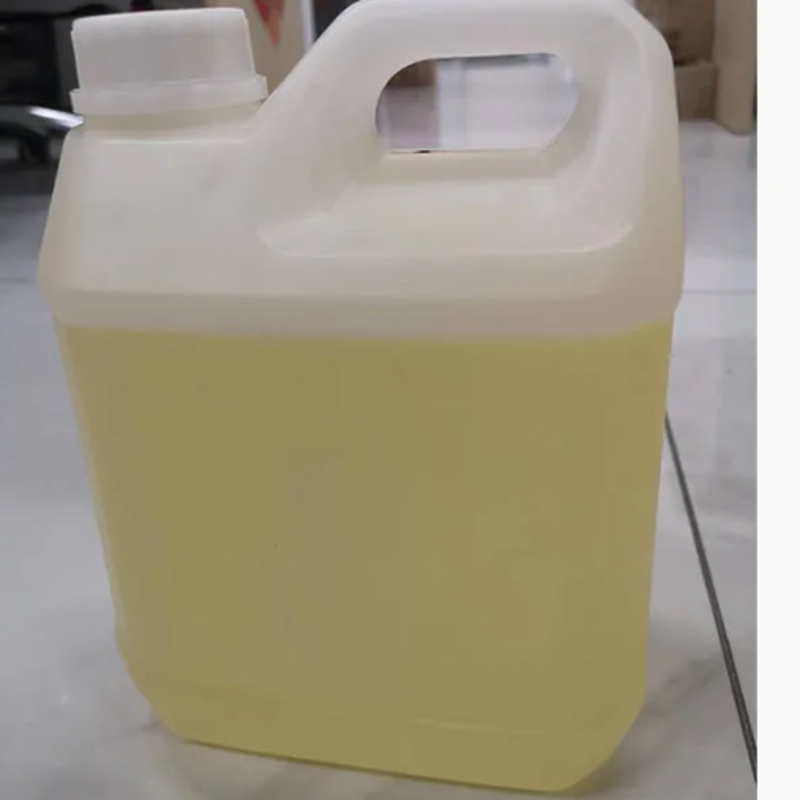-
Categories
-
Pharmaceutical Intermediates
-
Active Pharmaceutical Ingredients
-
Food Additives
- Industrial Coatings
- Agrochemicals
- Dyes and Pigments
- Surfactant
- Flavors and Fragrances
- Chemical Reagents
- Catalyst and Auxiliary
- Natural Products
- Inorganic Chemistry
-
Organic Chemistry
-
Biochemical Engineering
- Analytical Chemistry
-
Cosmetic Ingredient
- Water Treatment Chemical
-
Pharmaceutical Intermediates
Promotion
ECHEMI Mall
Wholesale
Weekly Price
Exhibition
News
-
Trade Service
On November 27, the revision decision of the "Beijing Municipal Waste Management Regulations" was approved by the 16th meeting of the Standing Committee of the 15th Municipal People's Congress, and the revised regulations will be officially implemented on May 1 next year
.
The revised regulations make it clear for the first time that units and individuals are responsible for the classification and delivery of domestic waste, and a combination of education and punishment shall be implemented for individuals who illegally release waste
.
At the subsequent press conference, Wang Rongmei, director of the Legislative Affairs Office of the Standing Committee of the Beijing Municipal People's Congress, and Hao Zhilan, director of the Urban Construction and Environmental Protection Office of the Beijing Municipal People's Congress Standing Committee, further introduced the background and key content of the revision of the regulations
.
1.
Domestic waste is divided into four categories: kitchen waste, recyclables, hazardous waste and other wastes
Domestic waste is divided into four categories: kitchen waste, recyclables, hazardous waste and other wastes
In order to facilitate the public to classify and throw garbage and avoid conceptual confusion, the revised "Regulations" further simplifies the garbage classification standards, integrates the two types of kitchen waste and kitchen waste into one type of kitchen waste, and clarifies that domestic waste is divided into kitchen waste.
There are four basic categories of garbage, recyclables, hazardous garbage, and other garbage
.
Kitchen waste refers to perishable waste such as vegetable leaves, melon and fruit peels, leftovers, and discarded food produced in households; enterprises and institutions, troops, schools, enterprises and institutions engaged in catering business activities Food residues, food processing wastes and waste edible oils and fats produced by collective canteens in food processing, catering services, unit meals, etc.
; , Livestock and poultry viscera,
etc.
Hazardous garbage refers to the toxic and harmful substances in household garbage, mainly including waste batteries (nickel-cadmium batteries, mercury oxide batteries, lead storage batteries, etc.
), waste fluorescent lamps (fluorescent lamps, energy-saving lamps, etc.
), waste thermometers, waste blood pressure meters, Waste medicines and their packaging, waste paints, solvents and their packaging, waste pesticides, disinfectants and their packaging, waste film and waste photographic paper,
etc.
Other waste refers to household waste other than kitchen waste, recyclables, hazardous waste, and household waste that is difficult to identify
.
In addition, the units and individuals that generate domestic waste are the responsible subjects for the classification and delivery of domestic waste, and should classify and release domestic waste in accordance with the following regulations: Large-scale waste such as waste furniture and household appliances should be separately stacked in the place designated by the person in charge of the classification management of domestic waste.
;The construction waste shall be piled up separately according to the time, place and requirements designated by the person in charge of the classification and management of domestic waste; the ash and soil generated in the daily life of rural villagers shall be placed in the corresponding container or the place designated by the person in charge of the classification and management of domestic waste
.
2.
Set up trash cans "according to local conditions"
Set up trash cans "according to local conditions"
Offices or production and operation sites of party and government organs, enterprises and institutions, social groups and other units shall set up four types of collection containers for kitchen waste, recyclables, hazardous waste and other wastes as needed
.
Residential quarters and natural villages shall set up collection containers for kitchen waste and other wastes in groups in public areas, and set up collection containers for recyclables and hazardous wastes at at least one domestic waste delivery point
.
Other public places should set up two types of collection containers for recyclables and other garbage as needed
.
The person responsible for the classification and management of domestic waste can set up collection containers in detail according to the types of recyclables and hazardous wastes and the needs for disposal and utilization
.
At the same time, it is clarified that the Beijing Municipal Commission of Urban Management will formulate specifications for the colors, graphic signs, setting standards and locations of classified collection containers, and announce them to the public
.
3.
Beijing prohibits the production and sale of ultra-thin plastic bags
Beijing prohibits the production and sale of ultra-thin plastic bags
Source reduction is a key link in the full implementation of the waste classification system.
This revision further improves the source reduction measures and strengthens the rigid constraints of the system
.
The revised "Regulations" stipulate that the production and sale of ultra-thin plastic bags in Beijing is prohibited
.
Supermarkets, shopping malls, bazaars and other commodity retail places shall not use ultra-thin plastic bags, and shall not provide plastic bags for free
.
Those who use ultra-thin plastic bags in supermarkets, shopping malls, bazaars and other commodity retail places will be ordered by the market supervision and management department to make corrections immediately, and a fine of more than 5,000 yuan and less than 10,000 yuan will be imposed; if the regulations are violated again, a fine of more than 10,000 yuan and 50,000 yuan will be imposed The following fines
.
4.
Restaurants and hotels can be fined up to 50,000 yuan for voluntary provision of disposable items
Restaurants and hotels can be fined up to 50,000 yuan for voluntary provision of disposable items
The revised "Regulations" stipulates that party and government organs and institutions will implement paperless office, increase the proportion of recycled paper, and do not use disposable cups
.
Starting from saving resources, reducing consumption, and guiding green consumption, the regulations are clear that catering operators, catering distribution service providers and hotel business units shall not take the initiative to provide disposable items and set up eye-catching reminder signs
.
The detailed catalog of disposable products shall be formulated by the municipal urban management department in conjunction with the municipal market supervision and management, culture and tourism, commerce and other departments, and announced to the public
.
The revised "Regulations" stipulates that those who voluntarily provide disposable products in violation of the regulations shall be ordered by the comprehensive law enforcement department of urban management to make rectification immediately, and a fine of more than 5,000 yuan and less than 10,000 yuan shall be imposed; if the regulations are violated again, a fine of more than 10,000 yuan and 50,000 yuan shall be imposed.
The following fines
.
5.
Individuals who do not classify garbage according to regulations can be fined up to 200 yuan
The revised "Regulations" stipulates that if the unit fails to classify and dispose of domestic waste according to the regulations, the comprehensive law enforcement department of urban management shall order it to make corrections immediately and impose a fine of 1,000 yuan; if the regulations are violated again, a fine of more than 10,000 yuan and less than 50,000 yuan will be imposed
.
Individuals who violate the regulations shall be dissuaded by the person in charge of household garbage classification management; those who refuse to obey the dissuasion shall be reported to the comprehensive law enforcement department of urban management, who shall give a written warning, and those who violate the regulations again shall be punished between RMB 50 and RMB 200.
fine
.
The relevant administrative penalty or administrative compulsory information will be shared with the Beijing Public Credit Information Platform
.







